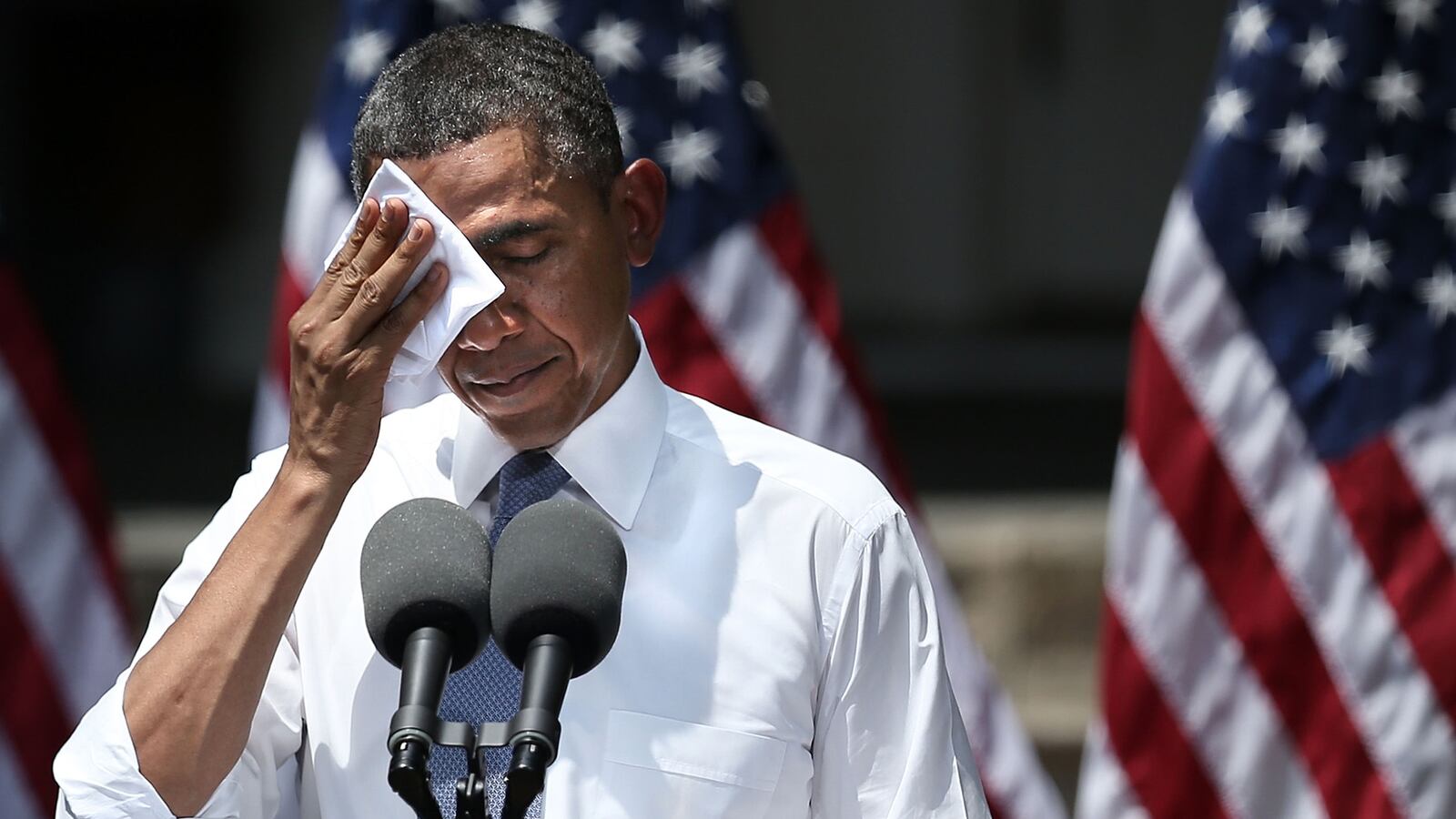There are a number of bases on which Barack Obama can be criticized, but I’d hope we’d be past the point where liberals whack Obama for policy proposals that aren’t bold enough. Back in 2009, it was possible to believe, I suppose, that he could have pushed through a public option with greater assertion of presidential will. But by now, everyone should be able to accept that he could hardly get a street-name change through this Congress. It’s going to have to be more modest than liberals would want.

But I don’t even find the climate proposals Obama spelled out under an appropriately baking sun on a quaint little quadrangle at Georgetown University today modest. Calling on the EPA to set carbon-emission limits from existing and new American power plants for the first time is bold. Increasing fuel-economy standards for heavy-duty vehicles is, too. There’s a lot in the plan. Individually, they’re small slices of the pie. But they add up to something. So I don’t think it’s fair to question his commitment. What I question, though, is how well he sells it, which unfortunately is not very.
When I hear Obama give speeches like this, I always wonder whom, exactly, he thinks he’s talking to. He has this ideal American in his head, or his speechwriters do, who is a blank slate, a kind of pure vessel of evidence and reason who listens to his factual case and thinks, “By golly, he’s right, and I’m going to call my congressman!”
But that isn’t really how politics works. There aren’t very many of those ideal Americans. Or let’s put it this way: on climate change, they’re already on his side (check out this new poll from the Georgetown Climate Center). So the problem isn’t public opinion.
The problem is Congress, and while today’s speech consisted of a series of executive orders that don’t require congressional action, it’s still a fact that push is someday going to come to shove on the question of power-plant emissions, and some utility CEOs undoubtedly spent the afternoon frantically calling their Republican senators to start figuring out how to scuttle this evil plan.
The speech, therefore, should have been aimed more squarely at those CEOs, selling them and their constituencies on the idea that lowering emissions need not hinder economic growth and wilt the glories of capitalism. The speech did go into these ideas; there was one section that wasn’t bad, when Obama pointed out that every time the United States has passed environmental legislation, free-market critics have said, as critics today will say, that “this will kill jobs and crush the economy and basically end American free enterprise as we know it.” That, he continued, “is what they said every time ... and every time they’ve been wrong.”
But in speeches like this one, Obama never really makes a case for his position that is specific and aggressive and instantly memorable. He is, and was at Georgetown, for the most part, general and passive and forgettable. I took notes, so I could tell you what he said. But I can hardly remember a single sentence. And I do remember thinking that, if I were one of these CEOs, he didn’t say much that would have impressed me.
They’re a tough crowd for Obama, no doubt of that. But they’re not all cavemen. Exelon’s John Rowe backed the EPA’s air-quality regulations of 2011. Ralph Izzo of New Jersey’s PSEG has written columns and given speeches welcoming federal regulation. Izzo is part of an industry “gang of three” that back in 2009 and 2010 expressed openness to regulations. And as I’ve noted repeatedly, the head of Exxon—Exxon!—supports a carbon tax. Google “utility CEOs support emissions limits” and you’ll see that these folks exist and have been urging action for several years now.
The difficulty, and I mean the entire difficulty, is prying the industry away from congressional Republicans. If CEOs step out too far and appear to embrace Obama’s agenda, you can bet their phones are going to start ringing: “Senator McConnell calling,” “Senator Inhofe calling,” “Leader Cantor calling.” That’s what goes on. That’s where the bottleneck happens. I don’t understand why Obama didn’t just say this outright, or some slightly gentler version of it.
I guess I do understand: he’d still rather be the guy who persuaded Republicans than the guy who stuffed their obstructionism down their throats. This desire is probably either motivated by (1) his civic-republican faith in our system’s power and resiliency and so on or (2) his fear that he can’t stuff their obstructionism down their throats. It’s probably more (2) than (1), meaning he’s never quite going to give them the fight they so lavishly deserve.
If liberals want to push Obama over these last three years, they should push him to get up in the Republicans’ grill more. The policy, under the circumstances, is fine. If implemented, these measures will make a difference. It’s just that there’s something about Obama’s presentation of them that makes them feel like defeats instead of victories.






